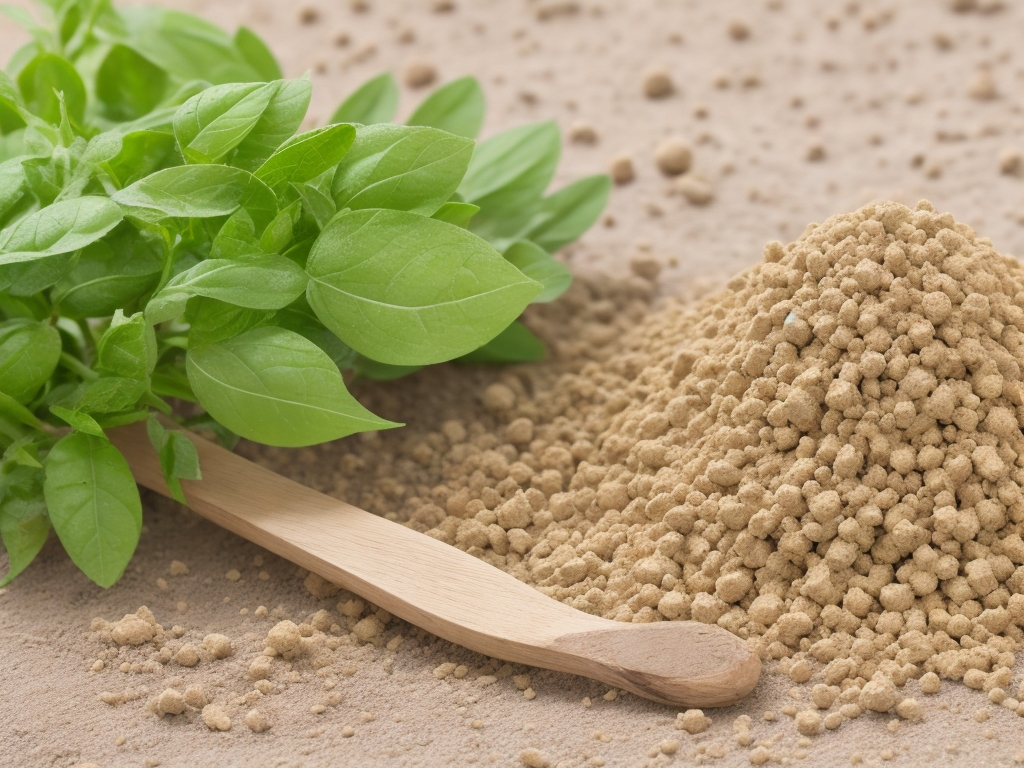
HISTORY AND BENEFITS:
With a more than 2,500-year history of use in Ayurveda, the traditional Indian medicine, ashwagandha is also referred to as Indian ginseng and, botanically, Withania somnifera. This nightshade family member, which is indigenous to India, the Middle East, and some regions of Africa, is well known for its adaptogenic properties, which help the body cope with stress. The name “ashwagandha,” which derives from Sanskrit, means “smell of the horse,” alluding to both its distinctive perfume and the long-held belief that it can increase vigor. Ancient writings like the Charaka Samhita praise its many medicinal benefits, highlighting its capacity to improve immunity, lessen pain, lessen anxiety, and lessen stress.
Benefits of Supplementation Ashwagandha’s health advantages have been the subject of substantial research. The following are some advantages of using ashwagandha supplements:
Reduces anxiety and stress: Research has revealed that ashwagandha lowers people’s feelings of anxiety and tension. Additionally, it can enhance one’s general wellbeing and quality of life. cortisol levels are returned to normal, which lessens the stress response. A daily dose of 240 mg of ashwagandha considerably decreased people’s stress levels when compared to a placebo in a human trial conducted in 2019.
In a different 2019 human investigation, ashwagandha dosages of 250 mg or 600 mg per day reduced cortisol levels and self-reported stress levels.
Even though this research shows promise, much more information is required before experts can suggest using the herb to treat anxiety.
Enhances brain function: Studies have revealed that ashwagandha helps people with their memory and cognitive skills. According to a 2017 study on ashwagandha and Alzheimer’s disease, cognitive decline was markedly slowed in patients with moderate severity over a two-year period, while cognitive function was largely stabilized in those with mild severity.
Ashwagandha has anti-inflammatory qualities that may be used to lessen bodily inflammation.
Increasing testosterone levels: There is some preliminary data that suggests consuming ashwagandha for two to four months may improve sperm quality and testosterone levels.
Sleep: a positive impact on adults’ subjective and objective sleep quality
Cardiorespiratory Endurance: A 2015 human study found that ashwagandha root extract may increase a person’s cardiorespiratory endurance, which may promote heart health. However, more study is required.

KEY References
Goff, K., & Ti, A. (2023, February 28). 5 Reasons You Should Be Taking Ashwagandha. CNET. https://www.cnet.com/health/nutrition/5-reasons-you-should-be-taking-ashwagandha/
Ashwagandha. (n.d.). NCCIH. https://www.nccih.nih.gov/health/ashwagandha
Bhattacharya, S. K., Bhattacharya, A., Krishnamurthy, S., & Ghosal, S. (2000, December 1). Anxiolytic-antidepressant activity of Withania somnifera glycowithanolides: an experimental study. Phytomedicine; Elsevier BV. https://doi.org/10.1016/s0944-7113(00)80030-6
Lopresti, A. L., Smith, S. J., Malvi, H., & Kodgule, R. (2019, September 1). An investigation into the stress-relieving and pharmacological actions of an ashwagandha (Withania somnifera) extract. Medicine; Wolters Kluwer. https://doi.org/10.1097/md.0000000000017186
Panda, S., & Kar, A. (1998, September 1). Changes in Thyroid Hormone Concentrations after Administration of Ashwagandha Root Extract to Adult Male Mice. Journal of Pharmacy and Pharmacology; Oxford University Press. https://doi.org/10.1111/j.2042-7158.1998.tb06923.x
Raut, A., Rege, N. N., Tadvi, F. M., Solanki, P., Kene, K. R., Shirolkar, S. G., Pandey, S. N., Vaidya, R., & Vaidya, A. D. (2012, January 1). Exploratory study to evaluate tolerability, safety, and activity of Ashwagandha (Withania somnifera) in healthy volunteers. Journal of Ayurveda and Integrative Medicine; Elsevier BV. https://doi.org/10.4103/0975-9476.100168
Shi, J., Ni, J., Lu, T., Zhang, X., Wei, M., Li, T., Liu, W., Wang, Y., Shi, Y., & Tian, J. (2017, December 1). Adding Chinese herbal medicine to conventional therapy brings cognitive benefits to patients with Alzheimer’s disease: a retrospective analysis. BMC Complementary and Alternative Medicine; BioMed Central. https://doi.org/10.1186/s12906-017-2040-5
Salve, J., Pate, S., Debnath, K., & Langade, D. (2019, December 25). Adaptogenic and Anxiolytic Effects of Ashwagandha Root Extract in Healthy Adults: A Double-blind, Randomized, Placebo-controlled Clinical Study. Cureus; Cureus, Inc. https://doi.org/10.7759/cureus.6466
Scientific basis for the therapeutic use of Withania somnifera (ashwagandha): a review. (2000, August 1). PubMed. https://pubmed.ncbi.nlm.nih.gov/10956379/
Chandrasekhar, K., Kapoor, J., & Anishetty, S. (2012, July 1). A Prospective, Randomized Double-Blind, Placebo-Controlled Study of Safety and Efficacy of a High-Concentration Full-Spectrum Extract of Ashwagandha Root in Reducing Stress and Anxiety in Adults. Indian Journal of Psychological Medicine; Medknow. https://doi.org/10.4103/0253-7176.106022
Benefits of Ashwagandha and How Much To Take. (2022, October 17). Cleveland Clinic. https://health.clevelandclinic.org/what-is-ashwagandha/
Cheah, K. L., Norhayati, M. N., Yaacob, L. H., & Rahman, R. A. (2021, September 24). Effect of Ashwagandha (Withania somnifera) extract on sleep: A systematic review and meta-analysis. PLOS ONE; Public Library of Science. https://doi.org/10.1371/journal.pone.0257843
Afonso, A. T., Fernández-Lázaro, D., Adams, D. P., Monserdà-Vilaró, A., & Fernández-Lázaro, C. I. (2023, July 10). Effects of Withania somnifera (Ashwagandha) on Hematological and Biochemical Markers, Hormonal Behavior, and Oxidant Response in Healthy Adults: A Systematic Review. Current Nutrition Reports; Springer Science+Business Media. https://doi.org/10.1007/s13668-023-00481-0
Mikulska, P., Malinowska, M., Ignacyk, M., Szustowski, P., Nowak, J., Pesta, K., Szeląg, M., Szklanny, D., Judasz, E., Kaczmarek, G., Ejiohuo, O., Paczkowska-Walendowska, M., Gościniak, A., & Cielecka‐Piontek, J. (2023, March 24). Ashwagandha (Withania somnifera)—Current Research on the Health-Promoting Activities: A Narrative Review. Pharmaceutics; Multidisciplinary Digital Publishing Institute. https://doi.org/10.3390/pharmaceutics15041057













